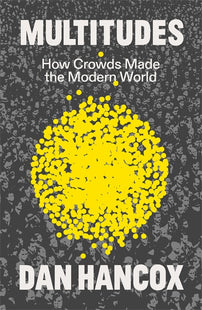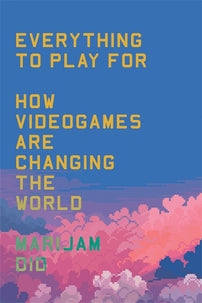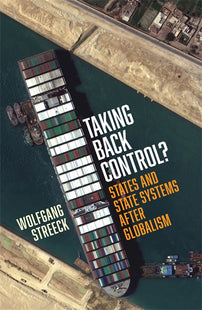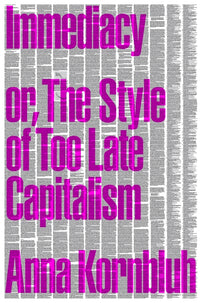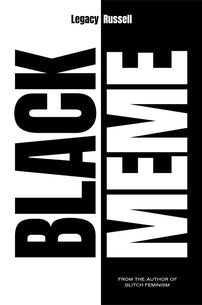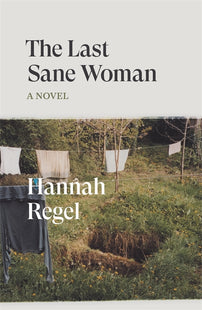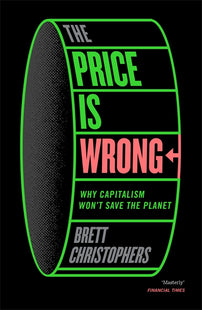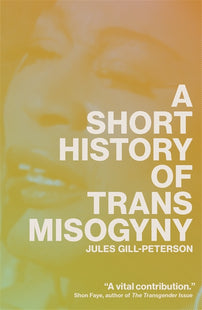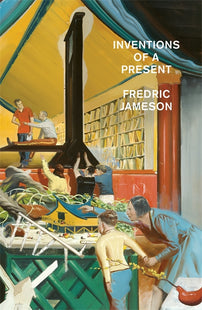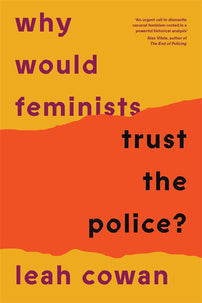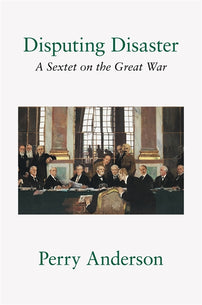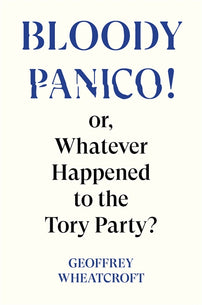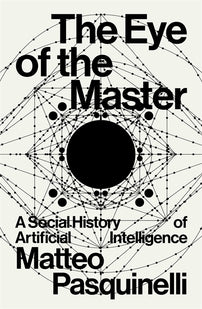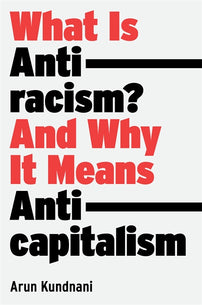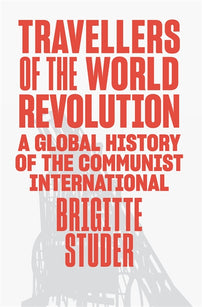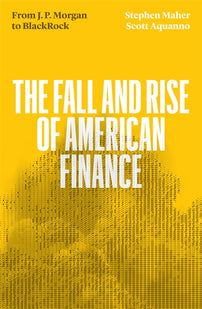Best Books of the Year: according to the critics
Critically-acclaimed and included in recent 2024 Best Books round-ups in the Guardian, Financial Times, ArtReview and more.

Our critically-acclaimed books of the year: featuring the politics of videogames, algorithmic control in the workplace, and the liberating power of crowds!
[book-strip index="2" style="buy"]
Selected by the Financial Times as one of their Best Books of 2024: Fiction in translation -
"Ida, Oslo-based and married, meets Arnold, an unremarkable (also married) academic, and decides he is the man of her life. He clearly is not, but still Ida abandons her husband and sets herself up for heartbreak and public humiliation. A rollicking account of the consequences of loving the wrong person."
[book-strip index="3" style="buy"]
Selected by the Guardian as one of their best ideas books of 2024:
"Could games nonetheless be diverted to emancipatory ends? That is the hope of Marijam Did’s engagingly idiosyncratic Everything to Play For: partly an exposé of modern video game production, dependent on technologies built in sweatshop conditions, and partly an ideological critique of games about shooting men in the face and so forth, in which even the colours of maps are seen to be coded: “Yellow for Africa and the Middle East signifying ‘dusty’, ‘historical’; blue for the west, that is, ‘modern’, ‘civilised’.” Luckily there exists a swath of indie games more to the author’s taste, about subjects ranging from 16th-century Bavarian monks to “a 100-metre-tall policeman overlooking a gloomy industrial Russian town”.
[book-strip index="4" style="buy"]
Selected by the Financial Times as one of their Best books of 2024: Economics -
"Streeck is arguably the most thoughtful critic of globalisation. In his latest book, he argues for a return of the sovereign nation state — what he calls the “Keynes-Polanyi state”, after economist John Maynard Keynes and economic sociologist Karl Polanyi — as the foundation of a new political and economic order. “Only in and through the nation-state could a renewed domestication, containment, and embedding of capitalism succeed, possibly followed in the future by its replacement with a less dangerous and more humane way of life.” Whether or not one is convinced of this, this thoughtful critique is valuable."
[book-strip index="5" style="buy"]
Picked by William Dalrymple for the Guardian Gift-Guide -
"Antony Loewenstein is one of the most fearless voices writing on how Israel subjugates the Palestinians. The Palestine Laboratory is an essential gift for anyone wishing to understand the horrific story of how Israel has built an entire tech economy on the spyware, drones and gruesome hardware that makes it possible for 7 million Israelis to keep 5.5 million Palestinians suspended in stateless serfdom."
[book-strip index="19" style="buy"]
Included in the Telegraph's best (and worst) politics books of 2024:
“Magnificently damning … [Wheatcroft] surveys the last 14 years with wit and anger, arguing that the Ides of March have come for the Tories: they’re facing an existential crisis that demands real boldness and imagination, not cheap platitudes and sloganeering.”
[book-strip index="6" style="buy"]
Selected by ArtReview as one of their Best Books of 2024:
"Three nonfiction books published this year addressed similar questions of action and inaction under capitalism.. [including[ Hannah Proctor’s magisterial Burnout: the Emotional Experience of Political Defeat, which, in a year coloured by electoral horrors and apathy, offered a way of thinking through despair."
[book-strip index="7" style="buy"]
Featured in ArtReview's Power 100: The annual ranking of the most influential people in art -
"Kornbluh’s Immediacy: Or, The Style of Too Late Capitalism was the most buzzed-about book of art theory this year, and with good reason... The book’s subtitle boldly positions it as a successor to Fredric Jameson’s era-defining Postmodernism: Or, The Cultural Logic of Late Capitalism (1991). But it’s not bragging if you back it up, and Immediacy does."
[book-strip index="8" style="buy"]
Featured in ArtReview's Power 100: The annual ranking of the most influential people in art -
"Legacy Russell, director of New York nonprofit space The Kitchen, published Black Meme: A History of the Images that Make Us this year, a book that follows the internet-plus-identity model established by her 2020 debut Glitch Feminism: A Manifesto. In Black Meme, Russell traces how, from the days of silent cinema to TikTok and GIFs, the Black subject has been reduced to archetype, not least via the hyperviolent ‘viral’ imagery of slain figures such as Emmett Till or Philando Castile, while likening the distribution of souvenir postcards of public lynchings to the sharing of memes. Russell isn’t just commenting on visual culture; she has a mission to change it."
[book-strip index="10" style="buy"]
Selected by ArtReview as one of their Best Books of 2024:
"A quietly assured tale of ceramicists and disappointment."
Endorsed by Sophie Mackintosh, author of The Water Cure:
"The Last Sane Woman is a brilliant, slyly funny, and acutely observed meditation on the process both of the making of objects and of one’s own life. Regel’s prose is gorgeous and deftly rendered on every page."
Reviewed in Frieze:
"[Regel's] knowledge of the art world jumps off the page ... she shows that, for women, the descent into madness can be a step towards freedom."
[book-strip index="9" style="buy"]
Featured in ArtReview's Power 100: The annual ranking of the most influential people in art -
"'It’s not possible to decolonise the museum without decolonising the world,’ Azoulay has stated... The Civil Contract of Photography (2008), written in response to the circulation of images resulting from the ongoing Israeli–Palestinian conflict, called for viewership accountability amid ever-increasing circulation, and it has only become more relevant. Such a dynamic approach has more recently been applied to museum holdings in her book Potential History: Unlearning Imperialism (2019) and films including Un-Documented: Unlearning Imperial Plunder (2019), as well as in an exhibition of drawings (made from archival photos she wasn’t permitted to reproduce) this year in Bristol. Describing herself as ‘an Arab Jew and a Palestinian Jew of African origins’, the Brown University professor tackled her own family history this year in her book The Jewelers of the Ummah: A Potential History of the Jewish Muslim World (2024)."
[book-strip index="15" style="buy"]
Reviewed by Christopher Clark in the London Review of Books:
"The most erudite and compelling voice on the British Marxist left ... Disputing Disaster is a book unlike any other on the 1914 debate ... a wealth of sharp and compelling reflections on how and why historians argue as they do, why they rethink, abandon or double down on their positions, and how politics and emotion flow into the writing of history and back out of it into the world."
Reviewed by Nicholas Mulder in the Financial Times:
"Punchy but wide-ranging ... Anderson's treatment of the literature is characteristically deft and learned."
[book-strip index="22" style="buy"]
Winner of the Deutscher Memorial Prize
[book-strip index="23" style="buy"]
Shortlisted for the Deutscher Memorial Prize
[book-strip index="24" style="buy"]
Shortlisted for the Deutscher Memorial Prize
[book-strip index="25" style="buy"]
Shortlisted for the Deutscher Memorial Prize
[book-strip index="1" style="buy"]
Reviewed in the New Yorker by A
"British journalist Dan Hancox, in his new book Multitudes goes much further than his scholarly forebears in the effort to defend the crowd from its defamers. He is an unstinting admirer of crowds and crowd action, not just as a means of social change but as a heady social experience of transcendence."
[book-strip index="17" style="buy" ]
Endorsed by Rachel Kushner:
"Fleurs du mal is full of beauty and riddles which are notoriously difficult to render in English. I’m so grateful that Nathan Brown, a scholar of such rigor and sensitivity, has taken the plunge and translated this ever-living masterpiece, and by a novel and much-needed approach: with nimble fidelity to the line, with a commitment to “hear” the poem and be out of its way, to let Baudelaire speak to us, as directly as he can, through the prism of a new mind."
[book-strip index="11" style="buy"]
Reviewed in the Financial Times:
"[Christophers] turns his sceptical gaze on climate change, and the attempts of western governments to nudge consumers away from fossil fuels ... masterly."
Endorsed by Andreas Malm:
"All aboard this ride through the hidden abode of electricity production - it is not to be missed! With his signature knowledge of the financial and economic systems that dominate our lives, Brett Christophers here takes on a central paradox of the moment. How is it that investment in fossil fuels continues relentlessly, even though renewables have become cheaper? Standard theories of the causes of climate breakdown will not survive this book. Readers will be all the wiser."
[book-strip index="12" style="buy"]
Endorsed by Torrey Peters, author of Detransition, Baby:
"Jules Gill-Peterson is one of the most original thinkers on gender of the past decade; now in this beautifully written and argued book, she makes her compelling vision accessible to everyone."
Endorsed by Shon Faye, author of The Transgender Issue:
"This is a sharply argued work by a brilliant thinker. By placing current the familiar and current political attack on trans femininity in Europe and North America within a much broader global and historical context, this text provides us with a rigorous and scholarly understanding of the origins and rationale of such violence. It educated and challenged me and it will become a vital contribution to political thought and organising around gender."
[book-strip index="13" style="buy"]
Reviewed by Benjamin Kunkel in the London Review of Books:
"Not often in American writing since Henry James can there have been a mind displaying at once such tentativeness and force. The best of Jameson’s work has felt mind-blowing in the way of LSD or mushrooms."
[book-strip index="16" style="buy"]
Endorsed by Andreas Malm:
"What thinker would you bring to an earth on fire? You would not want to leave Richard Seymour at home: he is essential company for an age of compound catastrophes."
Endorsed by China Miéville:
"One of the most consistently brilliant and lyrical thinkers writing today."
[book-strip index="18" style="buy"]
Endorsed by Benjamin Kunkel:
"Excavates the experience of loss in all its terrible solitude and intimacy."
Endorsed by Sarah Jaffe:
"In telling the story of learning to love and then learning to grieve, Riley traces a deep human connection that is rare in our fragmented world."
Reviewed by Lamorna Ash in the Telegraph:
"Precision is what makes Perdita, throughout its 192 pages, both so endearing and so heartbreaking ... a text of great generosity and warmth."
[book-strip index="14" style="buy"]
Endorsed by Alex Vitale, author of The End of Policing:
"An urgent call to dismantle carceral feminism rooted in a powerful historical analysis that centers the lived experiences and movements of those left out of mainstream feminism."
Endorsed by Stella Dadzie, author of A Kick in the Belly:
"Leah Cowan exposes the historical links between carceral feminism and policing with eloquent persuasion. Immaculately researched, her critique centres Black Feminism, while inviting us to dream of a world free of truncheons and jail cells."
